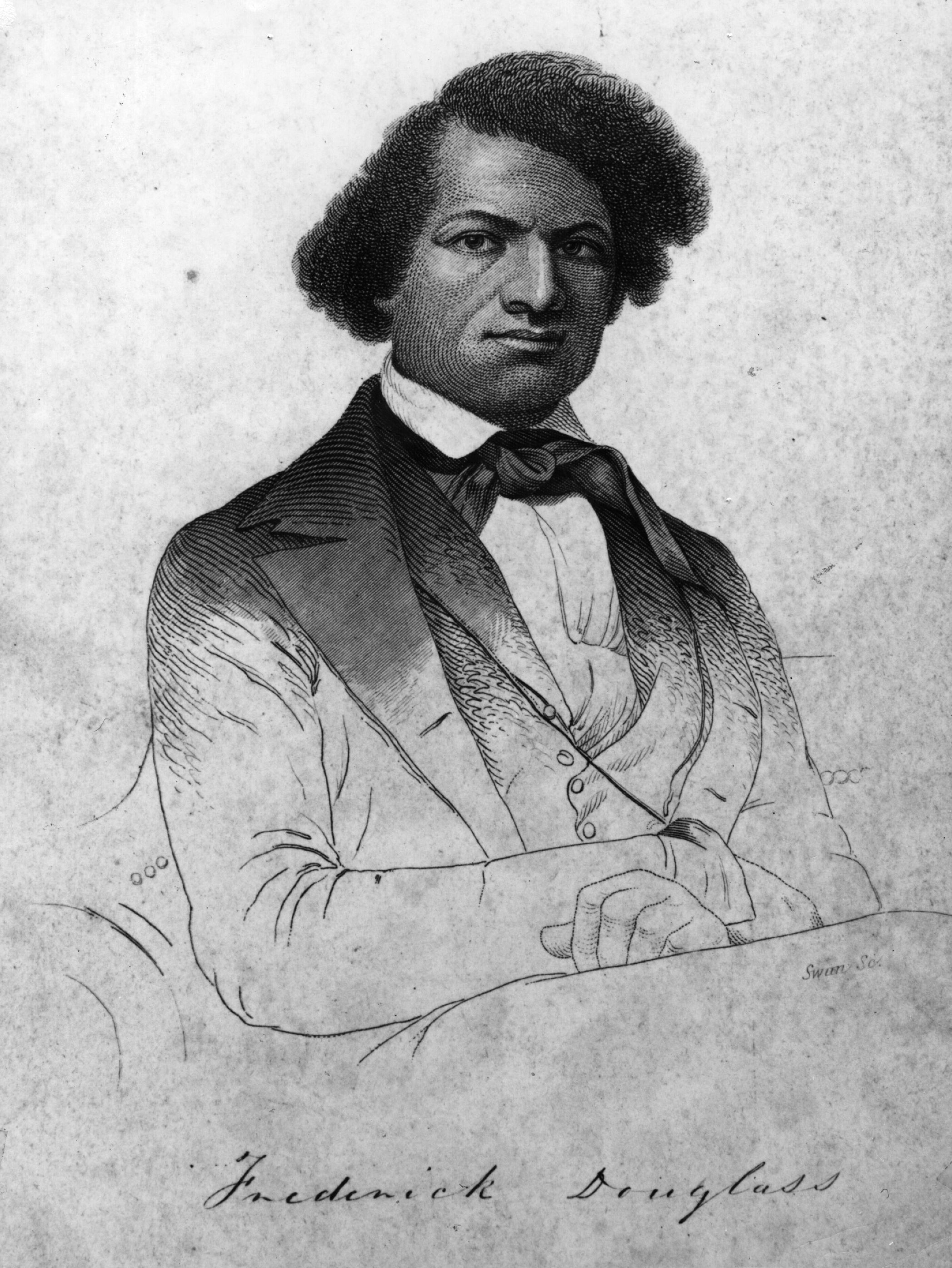How today's pro-immigrant activists are adopting the tactics of abolitionists
Their plan to stop Trump's immigration crackdown: Resist. Rebuff. Repeat.


Donald Trump has barely been president for six weeks. And already, he has declared a full-blown war on undocumented immigrants.
America's 45th president has ordered deportation raids in at least half a dozen cities, issued an executive order making all undocumented immigrants — not just "bad hombres" — fair game for removal, and threatened to defund sanctuary cities.
His agenda is harsh and may well set the stage for a moral showdown not unlike the one America saw in the run-up to the Civil War. At that time, a renewed crackdown against fugitive slaves generated a massive abolitionist backlash, ultimately ending slavery. Similarly, Trump's loathsome anti-immigrant actions are provoking a widespread resistance movement that may finally weaken immigration restrictionism.
Subscribe to The Week
Escape your echo chamber. Get the facts behind the news, plus analysis from multiple perspectives.

Sign up for The Week's Free Newsletters
From our morning news briefing to a weekly Good News Newsletter, get the best of The Week delivered directly to your inbox.
From our morning news briefing to a weekly Good News Newsletter, get the best of The Week delivered directly to your inbox.
Now, obviously, I'm not trying to compare slavery itself to illegal immigration. But the same "rule of law" argument that was made to forcibly return fugitive slaves to bondage in the 19th century is now being made to forcibly return undocumented workers to their home countries, resulting in an escalating — and, paradoxically, ever more lawless — use of state violence.
Consider the history:
Four years after the U.S. Constitution effectively enshrined slavery, Washington passed its first Fugitive Slave Act, granting slave owners a "right" to recover their "property." But by the beginning of the 19th century, free Northern states such as Pennsylvania, appalled by the inhumanity this entailed, started passing laws barring slaves from being removed from their territory. This was finally challenged in the Supreme Court in Prigg v. Pennsylvania in 1842, resulting in a mixed ruling. Since federal law superseded state law on this issue, the court noted, Pennsylvania could not stop Uncle Sam from hauling slaves away. However, the federal government could not force the states to assist its removal efforts either.
Less than a decade later, many of the free states and the feds were in full-blown showdown mode, paving the way for the Civil War. The feds passed the 1850 Fugitive Slave Act, ramping up enforcement against fleeing slaves. The law criminalized harboring or assisting fugitives, imposing fines and jail sentences on "abettors." It offered monetary rewards to private citizens who assisted in capturing runaways and appointed special magistrates expressly to issue search and arrest warrants.
Outraged, Northern states responded through subversion, tightening personal liberty laws barring local authorities from cooperating with the feds. They instructed city constables neither to arrest fugitives nor allow Uncle Sam to use local jails to park the alleged slaves after arrest. These laws gave freed slaves and white abolitionists — farmers, businessmen, and homeowners — the space to create routes to cross the Mason-Dixon Line to the North where a vast network of safe houses — underground railroads — cropped up to shelter runaways, all of which undermined the moral authority of slavery.
A similar dynamic is unfolding today between a federal government hunting down undocumented immigrants and the local governments trying to protect them.
Even before President Trump's election, four states and some 300 cities and municipalities had declared themselves sanctuary cities. What that means varies, but basically, just like the "personal liberty states" during slavery, these jurisdictions cannot prevent the feds from hunting down undocumented immigrants for deportation. However, they don't assist these efforts either, except when there are violent felons involved or when ICE (Immigration and Customs Enforcement) agents actually produce a warrant. It is a stance of non-cooperation.
Since Trump's election, some municipalities, such as Miami-Dade County, have caved in to his threats to cut off funding and ended their sanctuary policies. In addition, some red states are cracking down on their sanctuary cities, threatening to withhold state funding and even fine them and charge their officeholders with felonies. Arizona is working up a bill to seize the assets of pro-immigration protesters.
But just as personal liberty states proliferated during slavery, "sanctuary jurisdictions" are proliferating under Trump now. "In general," notes ACLU's Jonathan Blaze, "Trump has spurred a new wave of protective policies, with some states and dozens of localities reaffirming or expanding existing policies and a number of new ones establishing policies for the first time." California, a sanctuary state, is developing a legal challenge to Trump's executive order to cut off federal funding. Even some health centers, college campuses, and transit lines such as BART (Bay Area Rapid Transit) have declared that the feds will have to conduct all immigration enforcement actions without their assistance.
Apart from such public entities, scores of private churches, synagogues, and civic bodies are also jumping in to help. St. Andrews Presbyterian Church in Austin has declared itself a sanctuary church. Usually authorities leave religious establishments alone even though technically they are public spaces and don't require a warrant to enter to conduct law enforcement action. However, religious leaders in California are not counting on the Trump administration to have any such compunctions. Hence, in addition to providing legal and other services, they are also building an underground network of houses where undocumented and mixed-status families can live in hiding.
All of this means that the Trump administration will encounter massive resistance as it ramps up enforcement. And overcoming it will require ever-harsher tactics that will underscore the odiousness of the enforcement regime.
Restrictionists insist that leaving undocumented immigrants alone violates the sanctity of the rule of law. Whatever sense this makes in the abstract, enforcing it requires unleashing intrusive state actions on "crimes" without any victims. And this confronts people with what University of California's John S.W. Park calls the "Huckleberry Finn Problem."
Huck Finn in Mark Twain's novel could not bear to turn in Jim, a fugitive slave, even though he believed that freeing black men was a sin against both man's and God's law that would earn him a sure-fire ticket to hell. But Jim hadn't hurt anyone and Huck ultimately couldn't find it in his heart to betray a good fellow whose only sin was to try and improve his lot. "Inflicting the law became hard," notes Park, "when there was so much evidence of common humanity."
Restrictionists instinctively realize the inherent inhumanity of their position, which is why they have to go to great lengths to depict undocumented workers as criminals — "bad hombres" — even though the reality is the exact opposite. And restrictionist pundits like Victor Davis Hanson go even further, suggesting that sanctuary cities are the modern-day neo-Confederates whose insurrection is "unsustainable in a republic of laws."
But such blatant attempts at moral inversion will inevitably collapse once stories about ICE hauling away folks like Juan Carlos Hernandez Pacheco, an Illinois restaurant owner who served free meals to firefighters returning from a blaze, penetrate the public consciousness. Protests will escalate along with government efforts to quell them. People who are not paying much attention will inevitably wake up and recoil in horror.
Why? Government force is legitimate when proportional to the legal transgression at hand. When it isn't, it's best to rethink the law. Trump's crackdown on the undocumented is not just disproportional, but also misdirected at people who mean no harm. The tragedy is that under this president, the country will find out the hard way — and only after many innocent casualties.
A free daily email with the biggest news stories of the day – and the best features from TheWeek.com
Shikha Dalmia is a visiting fellow at the Mercatus Center at George Mason University studying the rise of populist authoritarianism. She is a Bloomberg View contributor and a columnist at the Washington Examiner, and she also writes regularly for The New York Times, USA Today, The Wall Street Journal, and numerous other publications. She considers herself to be a progressive libertarian and an agnostic with Buddhist longings and a Sufi soul.
-
 AI is creating a luxury housing renaissance in San Francisco
AI is creating a luxury housing renaissance in San FranciscoUnder the Radar Luxury homes in the city can range from $7 million to above $20 million
-
 How carbon credits could help and hurt the climate
How carbon credits could help and hurt the climateThe explainer The credits could be allowing polluters to continue polluting
-
 5 tips for building a healthy skincare routine for tweens and teens
5 tips for building a healthy skincare routine for tweens and teensThe Week Recommends Social media is pushing overly elaborate routines for young skin
-
 The last words and final moments of 40 presidents
The last words and final moments of 40 presidentsThe Explainer Some are eloquent quotes worthy of the holders of the highest office in the nation, and others... aren't
-
 The JFK files: the truth at last?
The JFK files: the truth at last?In The Spotlight More than 64,000 previously classified documents relating the 1963 assassination of John F. Kennedy have been released by the Trump administration
-
 'Seriously, not literally': how should the world take Donald Trump?
'Seriously, not literally': how should the world take Donald Trump?Today's big question White House rhetoric and reality look likely to become increasingly blurred
-
 Will Trump's 'madman' strategy pay off?
Will Trump's 'madman' strategy pay off?Today's Big Question Incoming US president likes to seem unpredictable but, this time round, world leaders could be wise to his playbook
-
 Democrats vs. Republicans: who are the billionaires backing?
Democrats vs. Republicans: who are the billionaires backing?The Explainer Younger tech titans join 'boys' club throwing money and support' behind President Trump, while older plutocrats quietly rebuke new administration
-
 US election: where things stand with one week to go
US election: where things stand with one week to goThe Explainer Harris' lead in the polls has been narrowing in Trump's favour, but her campaign remains 'cautiously optimistic'
-
 Is Trump okay?
Is Trump okay?Today's Big Question Former president's mental fitness and alleged cognitive decline firmly back in the spotlight after 'bizarre' town hall event
-
 The life and times of Kamala Harris
The life and times of Kamala HarrisThe Explainer The vice-president is narrowly leading the race to become the next US president. How did she get to where she is now?
